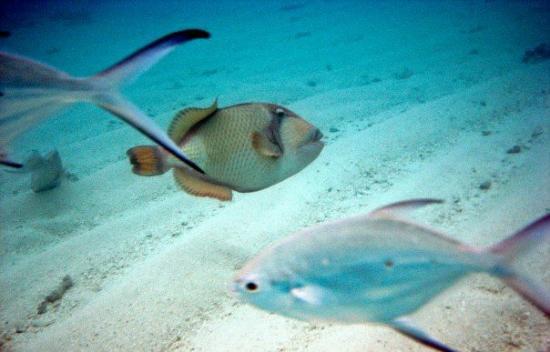MALIK JEHANGIR
SRINAGAR: Majority of the people living around the world famous Wular Lake in North Kashmir’s Bandipora district were dependent on production of fish, but due to multiple reasons the production of fish has gone down thus leading to problems for hundreds of families.
Once famous for fish production, Asia’s largest freshwater lake, the Wular is fast losing this resource, courtesy the increasing scale of pollution due to mushroom growth of residential houses. The presence of scores of security forces camps is also responsible for a dip in the production of fish in this lake.
The fishermen of the area said the massive pollution has affected the fish production and they lament no corrective action is being taken in this regard. They say that the people at helm know very well about the reasons responsible for the less production of fish adding that nobody is ready to bell the cat in this regard.
“In the past the lake was full of fish. We would catch fish of varying sizes on daily basis but the situation has changed of late. Most of the fishermen return empty handed in the evening. Those who are lucky come back with few kilograms of fish,” said Ali Mohammad, a fisherman.
Rough estimates point out that Wular Lake accounted for 60-70 per cent of the demand for fish in the valley in the past. However, the picture is totally different as on date with the fish from outside valley dominating the market. The production of fish in Wular has touched the lowest ebb.
Experts said the excreta coming out of the residential houses as well as the security camps along the Jhelum were directly emptying into the lake. They said that this has caused huge pollution in the lake thus affecting the fish production. They also feel that the previous governments over the years have failed to take necessary steps to prevent flow of sewage into the lake.
“Inflow of sewage, siltation and encroachments has badly affected the fish yield in the lake. The animal carcasses, latrine outlets and other pollutants have told upon the fish production. The aquatic life has paid a heavy price and the unfortunate part is that nobody is bothered to improve the situation,” the experts said.
Mohammad Subhan, a fisherman said that most of the people belonging to his community have said a goodbye to the fishing and taken up menial jobs. He said that fishermen have been pushed to the wall due to the greedy nature of the people adding that drastic measures need to be taken to restore the original position of the lake.
“Earlier we used to catch a huge quantity of fish and as such we could live a dignified as well as satisfied life. But today the situation has changed and we are not able to make the ends meet. Given this situation most of the people have given up the job of fishing and are working as petty labourers mostly in the construction business,” said Subhan.
A survey carried out by a global agency said that the resources mapping trends of Wular indicate a steep decline in its fish catch over the past 50 years. The survey states that massive decrease of water level and its degradation has led to decline in economically native fish species Schizotheorax in the lake.
“Large quantities of sewage discharged from the Srinagar city and major towns flow into the lake resulting in increased euthrophication which has adverse impacts on the growth and development of the fisheries in general and sensitive species Schizotheorax in particular,” says the agency report.
The fishermen as well as the experts say that if some filter is erected at Shadipora or Sumbal then the fish population can be enhanced. They say this will halt the sources of pollution like polythene and animal carcasses. However, up to this moment of time no step has been taken and as such the fishermen community continues to suffer.
The introduction of carp species of fish in Dal Lake and heavy siltation in Wular lake have led to a consistent decline in the production of schizothorax, a local fish species. Excessive growing of vegetable crops on floating gardens leading to algal blooms, have all led to a decline and destruction of the breeding grounds of the local fish species.
Figures point out that fisheries form an important component of the economy of Jammu & Kashmir, which along with agriculture, contributes a significant 23 percent to its Gross Domestic Product (GDP). Besides being an important allied activity to agriculture, it contributes significantly to the agricultural economy and also generates self-employment.
“The priority of the government seems to be more towards revenue generation from tourism rather than the conservation and development of lake fisheries, which would enable the fishermen to earn increased income in terms of return on time invested in fishing,” said Ghulam Rasool, a fisherman.
Rasool says that care needs to be taken to ensure sustainable and growing stock of local species and less carp. He says that carp culture can be promoted as a separate freshwater aquaculture activity in other water bodies, which would yield good income and help maintain the supply of fish to the markets.
“Monitoring agencies like Pollution Control Board could have done a great job in stopping the pollution in Wular Lake. But this did not happen and as a result of the same the lake was full of garbage, human excreta, silt and other forms of pollution. At the end of the day it is the poor man who suffers and the same is case with fishermen of Wular,” said a group of fishermen.


